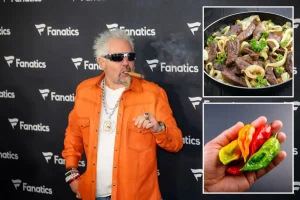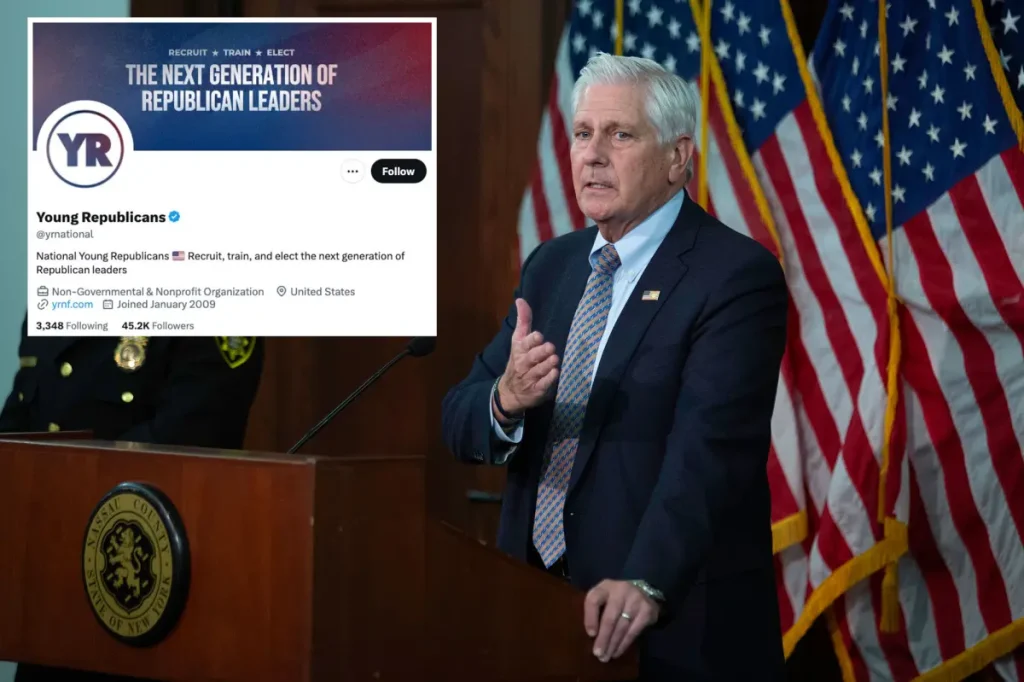Nassau GOP Officials Denounce Young Republicans After Disturbing Group Chat Revelations
In a shocking revelation that has sent ripples through New York’s political landscape, top Republican officials on Long Island have publicly condemned the New York Young Republicans following the exposure of deeply disturbing group chat messages. The conversations, spanning nearly 3,000 pages first obtained by Politico, contained abhorrent content including praise for Hitler, Holocaust jokes, racial slurs against Black people, and casual discussions about sexual assault, with some members describing rape as “epic.” The discovery has prompted swift action from party leadership, with the New York Republican State Committee voting to formally disband the chapter and revoke its charter, labeling the messages as “vile” and “indefensible” in their official statement. The committee has indicated that the Young Republican Club could potentially be reorganized in the future under new leadership, but only after a complete overhaul that would address the toxic culture revealed in these exchanges.
Nassau County Executive Bruce Blakeman made his position clear, stating emphatically that “the so-called Young Republicans who espouse values contrary to our party’s principles and my values are not welcome in my campaign.” This public distancing comes as a significant blow to the now-disbanded group, which had previously enjoyed a supportive relationship with the county Republican Party. Blakeman’s statement represents an attempt to draw a clear line between mainstream Republican values and the extremist views expressed in the leaked messages, reinforcing that such hateful rhetoric has no place in legitimate political discourse. The county executive’s comments highlight the challenge facing Republican leadership nationwide as they navigate internal tensions between traditional conservative values and more radical elements that have gained visibility in recent years.
The revelation of these messages has not only damaged the reputation of the Young Republicans but has also created political fallout for Nassau County Republicans who, according to Democratic critics, were slow to respond to the scandal. Seth Koslow, the Democratic candidate challenging Blakeman in the upcoming November election, criticized the county executive’s timing, suggesting that Republicans only spoke out after learning that Democrats planned to publicly call them out for their silence during the first four days following the leak. “Leadership is doing what’s right when no one is looking,” Koslow told reporters on Friday, “and over the last four days when no one was looking, Bruce Blakeman could have said something — but he said nothing.” This critique frames the Republican response as reactive rather than principled, suggesting that public pressure, not moral clarity, ultimately drove their condemnation.
The content of the messages reveals a deeply troubling culture within this chapter of Young Republicans that goes far beyond typical partisan differences or policy disagreements. The casual nature with which members discussed topics like the Holocaust, used racial slurs, and made light of sexual violence points to a fundamental disconnect from basic human decency and respect. While political organizations across the spectrum may contain individuals with extreme views, the pervasiveness of such content throughout these group chats suggests this was not merely the behavior of a few outliers but rather indicative of a broader cultural problem within the organization. This raises serious questions about how such attitudes were allowed to flourish unchecked within a group affiliated with a major political party, and what oversight mechanisms failed to identify and address these issues earlier.
The disbanding of the chapter represents an attempt at organizational accountability, but for many observers, questions remain about whether this action addresses the root causes that allowed such a toxic environment to develop. The state committee’s decision to leave open the possibility of reorganizing the club under new leadership acknowledges that young conservative voices still need representation, while recognizing that the previous incarnation had become irredeemably tainted. The challenge moving forward will be ensuring that any reconstituted organization has sufficient guardrails and oversight to prevent similar issues from recurring. This situation highlights the broader difficulties political parties face in maintaining control over affiliated groups while allowing them the autonomy to develop their own identity and recruit new members.
This controversy emerges against the backdrop of increasing polarization in American politics and ongoing debates about extremism within political movements. For mainstream Republicans, incidents like this create difficult choices between maintaining party unity and clearly repudiating hateful rhetoric that contradicts stated values of respect and inclusivity. For Democrats, such revelations provide political ammunition but also raise questions about how to engage constructively with opponents when extreme elements appear within their ranks. As both parties move forward, the challenge will be fostering political environments where robust debate can occur without descending into dehumanization or hate speech. The disgraceful behavior revealed in these messages serves as a sobering reminder that political passion must always be tempered by basic human decency and respect for others, regardless of political affiliation.












